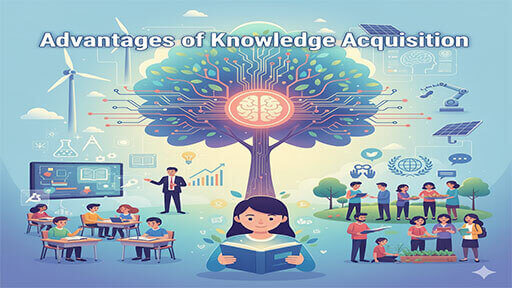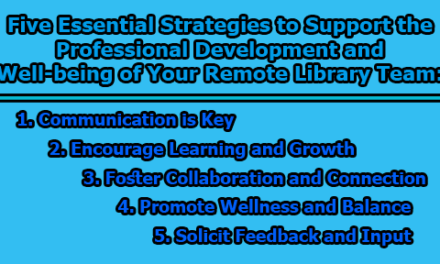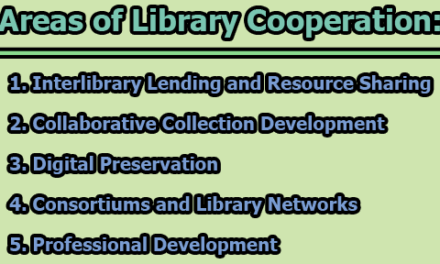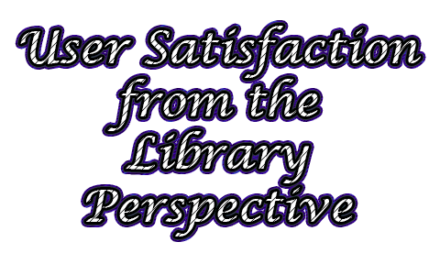Advantages of Knowledge Acquisition:
Knowledge acquisition—the process of learning, understanding, and applying information—has always been a cornerstone of human progress. From the earliest discoveries of fire and agriculture to the cutting-edge technologies of today, acquiring knowledge has shaped our personal lives, professional careers, societies, and the very world we inhabit. In today’s rapidly evolving world, where challenges and opportunities emerge faster than ever, the ability to continuously acquire knowledge is not just beneficial but essential. Beyond memorizing facts, knowledge empowers individuals to think critically, make informed decisions, and adapt to change. It fuels innovation, strengthens communities, and provides the foundation for sustainable development. This article explores the multifaceted advantages of knowledge acquisition, examining its impact on personal growth, education, professional life, society, and technological progress.
1. Personal Growth and Empowerment: Knowledge acquisition provides individuals with numerous advantages that directly influence their personal lives and sense of identity.
- Improved Self-Awareness: Learning expands one’s perspective, helping people understand their own values, beliefs, and behaviors. For instance, reading psychology books or attending workshops on self-development can help someone recognize unhealthy patterns in their relationships and work toward breaking them. This deeper awareness allows individuals to set realistic goals, choose healthier habits, and pursue paths that align with their true potential.
- Confidence and Independence: Knowledge brings a sense of control and self-assurance. When individuals understand how something works—whether it is cooking, repairing household items, or mastering a professional skill—they are no longer dependent on others. For example, someone who learns basic computer troubleshooting can confidently handle technical issues without relying on outside help. This independence builds confidence, which often encourages people to take on even greater challenges.
- Informed Decision-Making: Acquiring knowledge helps people weigh their options carefully before making choices. For example, a person who studies nutrition is better equipped to select foods that support long-term health, while someone who researches career options can make informed decisions about education and job opportunities. Instead of acting on impulse, knowledge allows individuals to consider risks, benefits, and long-term effects.
- Resilience and Adaptability: Life is filled with challenges, and knowledge acts as a tool to manage them effectively. Someone who learns stress management techniques or gains knowledge about mental health can cope better with personal crises. Similarly, in times of sudden change—such as job loss or a shift in technology—those who continuously acquire new knowledge adapt faster and maintain stability in uncertain situations.
- Continuous Self-Improvement: Knowledge acquisition fosters a cycle of lifelong learning. The more people learn, the more curious they become, motivating them to explore new areas of interest. This drive for constant improvement promotes creativity, keeps the mind active, and prevents stagnation. For example, someone who begins learning about photography as a hobby may later explore digital editing, turning curiosity into a professional skill.
2. Educational Advancement and Cognitive Development: In the realm of education, knowledge acquisition forms the foundation for intellectual growth, critical thinking, and academic achievement.
- Critical Thinking and Problem-Solving: Education is not simply about memorizing facts but about learning to analyze, evaluate, and apply them. For example, a student who understands mathematical concepts is better able to solve real-life problems, such as calculating expenses or designing a project. This ability to think critically also helps learners make sound judgments in complex situations, fostering independence in learning and decision-making.
- Cognitive Skills Development: Knowledge strengthens essential mental functions such as memory, concentration, comprehension, and reasoning. For instance, learning a second language improves not only communication but also cognitive flexibility, allowing students to switch between tasks more easily. Similarly, engaging with complex subjects like science or philosophy stimulates the brain, enhancing intellectual capacity and preparing learners for lifelong cognitive resilience.
- Cross-Disciplinary Connections: One of the greatest advantages of acquiring knowledge is the ability to connect ideas across different fields. For example, a student who studies both history and literature can gain deeper insights into cultural values of a particular era. Likewise, combining knowledge of science with ethics helps learners consider the social and moral impact of technological innovations. These interdisciplinary connections encourage holistic understanding and balanced judgment.
- Creativity and Innovation: Exposure to a wide range of knowledge areas sparks creativity and inspires innovative solutions. Many groundbreaking discoveries and inventions come from individuals who combined insights from different fields. For instance, Leonardo da Vinci drew upon his knowledge of anatomy, mathematics, and art to design inventions far ahead of his time. In education, students who acquire broad knowledge are more likely to think outside the box and contribute unique ideas.
- Motivation and Engagement: Knowledge acquisition also fuels curiosity and engagement in learning. When students see how knowledge applies to real life—such as understanding how physics principles explain how airplanes fly—they become more motivated to explore the subject further. This motivation not only improves academic performance but also nurtures a love of learning that lasts beyond the classroom. Engaged learners are more likely to seek out new experiences, pursue higher education, and continue growing intellectually.
3. Professional Growth and Career Opportunities: Knowledge acquisition is one of the strongest drivers of professional success and advancement. In today’s fast-changing job market, the ability to keep learning is as valuable as existing skills.
- Skill Development and Expertise: Acquiring knowledge allows professionals to stay updated in their field and gain specialized expertise. For instance, a software developer who learns new programming languages or keeps up with cybersecurity trends will remain competitive and adaptable in an evolving tech industry. This continuous skill development enhances both job performance and career prospects.
- Increased Employability: Employers value candidates who demonstrate a commitment to learning. Someone who actively acquires knowledge—through certifications, workshops, or professional training—signals adaptability and initiative. For example, an accountant who also learns about data analytics may become more attractive to employers who require diverse skill sets. This adaptability increases employability in multiple industries.
- Career Advancement and Leadership: Knowledge acquisition often leads to promotions, leadership roles, and higher responsibilities. Leaders are expected to guide teams, solve problems, and make decisions effectively—all of which rely on knowledge. A manager who studies leadership psychology or conflict resolution strategies will handle workplace challenges more effectively, fostering both team harmony and organizational growth.
- Innovation and Productivity: A knowledgeable workforce contributes to innovation by finding better ways of doing things. For example, an employee who learns about process automation might suggest adopting new tools that save time and reduce costs. This not only benefits the individual but also boosts the productivity and competitiveness of the organization.
- Adaptation to Changing Industries: With rapid technological advancements, entire industries are being reshaped. Professionals who keep acquiring knowledge—about artificial intelligence, renewable energy, or global business trends—can adapt quickly, whereas those who remain stagnant risk becoming outdated. In this sense, knowledge is no longer optional but essential for long-term career survival.
4. Societal Progress and Cultural Understanding: Beyond individual and professional benefits, knowledge acquisition plays a crucial role in shaping societies and strengthening communities.
- Informed Citizenship: When individuals acquire knowledge about political systems, economics, or social issues, they become better citizens. They can make informed decisions during elections, engage in civic debates, and hold leaders accountable. For example, citizens knowledgeable about climate change policies can advocate for sustainable practices and demand responsible governance.
- Cultural Appreciation and Tolerance: Learning about different cultures, histories, and traditions fosters respect and reduces prejudice. For instance, someone who studies world religions or cultural anthropology may develop empathy and understanding toward people with different beliefs. This knowledge promotes inclusivity and helps societies embrace diversity rather than fear it.
- Social Responsibility and Community Development: Knowledge enables individuals to contribute meaningfully to their communities. For example, a person who learns about public health can volunteer in awareness campaigns, while someone who understands financial literacy can help others manage their resources. Collective knowledge strengthens social bonds and leads to healthier, more resilient communities.
- Economic Growth and Innovation: Societies that prioritize knowledge acquisition—through education, research, and training—tend to be more prosperous. Knowledge leads to new industries, job creation, and technological advancement. For example, countries that invest heavily in science and technology, such as South Korea or Germany, often achieve strong economic growth and global competitiveness.
- Social Harmony and Problem-Solving: Knowledge also equips societies to solve pressing challenges, such as inequality, environmental degradation, or healthcare crises. A population that is educated and informed can collaborate on solutions instead of relying solely on policymakers. This collective ability to problem-solve creates stronger, more unified societies.
5. Technological Innovation and Problem-Solving: Knowledge acquisition is the backbone of scientific discovery and technological progress. It enables humanity to innovate, adapt, and address global challenges in ways that improve quality of life for individuals and societies.
- Foundation for Scientific Discovery: Every technological breakthrough is rooted in accumulated knowledge. For example, the development of vaccines relied on centuries of medical research and understanding of biology. Without continuous knowledge acquisition, these life-saving discoveries would not have been possible. This shows how each generation builds upon the knowledge of the previous one.
- Driving Innovation and Creativity: New technologies often emerge from the integration of knowledge across different fields. For instance, modern smartphones combine insights from physics, engineering, design, and computer science. Innovators who acquire knowledge beyond their core discipline often produce the most groundbreaking ideas. This cross-pollination of knowledge is what drives creative solutions in technology.
- Addressing Global Challenges: Humanity faces complex issues such as climate change, food insecurity, and energy shortages. Acquiring and applying knowledge is essential for finding sustainable solutions. For example, research in renewable energy sources like solar and wind power has been made possible through decades of scientific knowledge acquisition. These advancements help societies move toward greener and more sustainable futures.
- Enhancing Human Life and Health: Knowledge-driven technological progress has significantly improved healthcare, communication, and transportation. Learning in fields such as artificial intelligence, biotechnology, and medical imaging has revolutionized how diseases are diagnosed and treated. For instance, AI-powered diagnostic tools can now detect illnesses more accurately and faster than human doctors in some cases, saving countless lives.
- Adaptation in a Rapidly Changing World: As technology evolves at an unprecedented pace, societies must continuously acquire new knowledge to keep up. Individuals who learn digital skills, organizations that invest in research, and governments that support innovation all contribute to progress. Without ongoing knowledge acquisition, communities risk being left behind in a world driven by technological change.
In conclusion, knowledge acquisition is far more than a mere academic exercise—it is a transformative process that shapes individuals, societies, and the world at large. On a personal level, it empowers self-awareness, confidence, and resilience. In education, it nurtures critical thinking, creativity, and cognitive development. Professionally, it opens doors to skill enhancement, career growth, and innovation. For societies, it fosters informed citizenship, cultural understanding, and social progress. And in the realm of technology, knowledge acquisition drives innovation, solves global challenges, and improves the quality of human life. By continuously seeking and applying knowledge, individuals and communities alike can navigate a complex, fast-changing world with insight, adaptability, and vision, ultimately shaping a brighter and more sustainable future.

Library Lecturer at Nurul Amin Degree College










